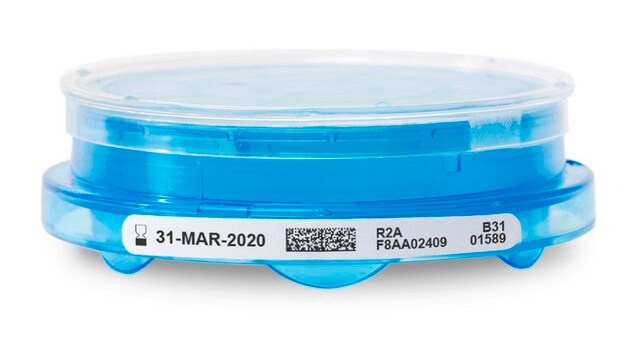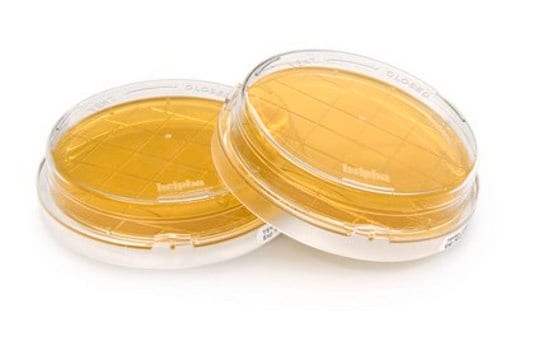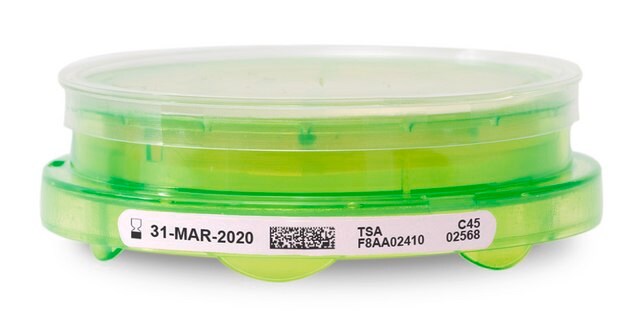1.52610
TLC Explorer
Digital TLC analysis and documentation device
Synonym(s):
Digitization instrument for TLC plate analysis, TLC plate analyzer, TLC plate reader
About This Item
Recommended Products
Quality Level
greener alternative product characteristics
Design for Energy Efficiency
Learn more about the Principles of Green Chemistry.
sustainability
Greener Alternative Product
greener alternative category
storage temp.
2-30°C
General description
Features and Benefits
- Digitalized solution converts spot intensity into numerical data, allowing for quantitative and qualitative analysis of TLC, HPTLC, and PLC plates.
- Digital imaging in less than 2 minutes allows for consistent capture of TLC plates, reducing subjectivity. The software analyzes spots based on pixel intensity and location, leading to more reliable interpretations.
- Automation and digitalization help standardize the TLC process, reducing variations caused by human factors. This leads to greater consistency in analysis and improved reproducibility.
- Enhanced documentation and archiving of digital records for saving, sharing, and retrieving. Researchers can track historical data and compare results over time more efficiently.
Other Notes
The software enables TLC plate analysis in under 2 minutes, with automated track recognition and simultaneous measurement of multiple plates across a 20 x 20 cm area. It includes features like auto-image rotation for misaligned plates, background noise reduction filters, and automatic detection of the starting line and solvent front, with manual adjustment options. Annotations can be added for extra clarity, and the software supports both comparative and quantitative examinations of plates.
The device uses three LED light sources—white light (VIS), UV-A (366 nm), and UV-C (254 nm) — to illuminate the plates from above in direct-light mode and identify distinct substances. It features glove-compatible touch sensors for easy operation, a camera, and a PC unit with an antenna, all designed to meet industrial standards (URS). Connecting to the system is easy via Wi-Fi or QR code scan for smartphones, laptops, or desktop operation. This plug-and-play setup requires no technical support. The instrument can also use a power bank (sold separately) for added portability.
ERGONOMIC VISUAL PLATE ANALYSIS
The TLC Explorer features an inspection window for safe and quick examination of the plate. A manual shutter slider controls light entry, allowing the user to adjust visibility and minimize stray light. It provides three types of excitation sources, easily switched on with a tap on the touch-sensitive buttons, indicating their wavelengths. However, only one light source can be active at a time.
SAFETY AND SUSTAINABILITY
The device features a safety setup that prevents UV exposure by ensuring the analytical process only begins when the plates are secured and closed in the Drawer Unit. A “Drawer Open” light indicates that the drawer has not been closed properly. The instrument also uses energy-efficient LED modules instead of traditional mercury lamps for its light source, providing a more sustainable and durable option.
EASY MAINTENANCE AND LAMP CHANGE
The exterior of the TLC device is easy to clean with commonly used solvents. Regular service maintenance is not required. Replacing the lamp unit can be done with minimal effort. Replacement parts and accessories can be ordered separately. If you need any further assistance, please contact your local Tech Service or visit our service webpage: SigmaAldrich.com/TLCservice
- TLC Explorer device including illumination unit and software
- Baseplate for TLC plates
- Power plugs for worldwide connection
- Instruction Manual & "How to Start" Quick Guide
- QR code sticker for quick connection
- Dust cover
FREQUENTLY ASKED QUESTIONS (FAQS)
Can the software perform quantification or semi-quantitate analyses:
Yes, it can. The software can calculate concentrations by comparing the spot on a track with corresponding spots on reference tracks that have known concentrations.
Is the software tool GMP-compliant:
No, the software is not fully GMP-compliant.
Can the instrument analyze plate formats other than 20 x 10 cm and those with backings other than glass:
Yes, the instrument accommodates a variety of plate sizes and thicknesses for added versatility. It supports aluminum- or plastic-backed TLC, HPTLC or PLC plates with different formats and shapes, up to 20 x 20 cm.
How many different plates can be analyzed in parallel:
You can load several plates or sheets on the base plate, which has an area of 20 x 20 cm at the top of the drawer. The software can analyze multiple plates in parallel, accurately distinguishing between each one during the measurements.
Can I also analyze the HPTLC plates:
Yes, the instrument (including software) allows a highly reliable analysis of HPTLC, TLC, and PLC plates.
Can I run a wavelength scan:
No, unfortunately, this feature is not available. You can carry out excitations at 254 nm, 366 nm, and VIS wavelengths.
Is there a warranty included:
Yes, we offer a one-year warranty. And in case you encounter any technical issues, please contact your local representative for further advice.
What is the expected lifetime of the lamp:
The lamp unit is equipped with three LEDs, which have a significantly longer lifetime and are more sustainable than mercury lamps. The LEDs can last 2-7 years, depending on the hours of usage.
Certificates of Analysis (COA)
Search for Certificates of Analysis (COA) by entering the products Lot/Batch Number. Lot and Batch Numbers can be found on a product’s label following the words ‘Lot’ or ‘Batch’.
Already Own This Product?
Find documentation for the products that you have recently purchased in the Document Library.
Related Content
Discover an efficient and automated software for accurate and reliable qualitative and quantitative TLC analyses. Enjoy a hassle-free plug-and-play experience and easily connect through WiFi or LAN for seamless connectivity.
Qualitative and quantitative TLC analyses. Automated software for hassle-free, quick, and precise results. Plug-and-play setup with intuitive software.
Our team of scientists has experience in all areas of research including Life Science, Material Science, Chemical Synthesis, Chromatography, Analytical and many others.
Contact Technical Service







